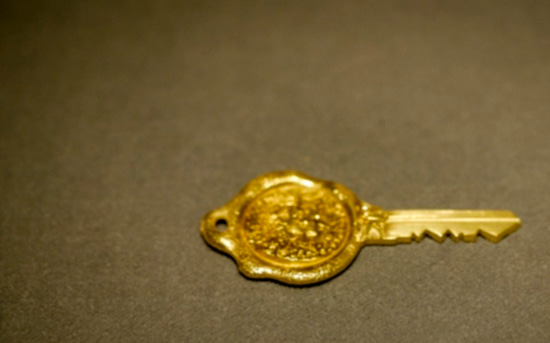Infidelity is always associated with radical changes and a multitude of heavy emotions: loss of trust, shame, guilt, fear, pain, anger. Infidelity cannot be forgiven by an act of will, and “simply forgetting” about it is also unlikely to work. Experts from Treatfield discuss how to behave and what to rely on to survive this difficult period and recover after infidelity.
About male and female cheating
Answered by psychologist Ilia Poludonnyi
In society, male and female infidelity are perceived differently. Both externally—female infidelity is generally more readily condemned, while male infidelity is slightly more often excused—and “internally,” there are ideas that, depending on gender, infidelity is experienced differently by the person who cheated, and that men worry less or suffer less from feelings of guilt.
But the habit of separating infidelity into male and female is a stereotype and a gender myth.
If we take a step back and return to the definitions, infidelity is a violation of agreements within a couple. The first problem arises right here: what if there were no agreements? We often don't think about this and consider infidelity to be what is infidelity to us personally, although in reality this issue needs to be discussed and articulated with a partner. The partner's ideas about infidelity may be, and most likely will be, completely different. It would be a good idea to sort this all out and clarify it.
If agreements did exist and they were violated, then there is every reason to speak of infidelity. And the mechanism that pushes people to violate agreements, again, depends little on gender. In any case, infidelity is an attempt to address an internal deficit if it cannot be addressed within the relationship (for example, to gain recognition or acceptance, to feel alive), or it is an attempt to "say" something to the partner in this way. The violation of agreements is always, in some sense, an act of aggression. And that means this aggression could not be expressed and realized in another way.
We recommend watching: 5 questions about female infidelity
You can find recipes online on "how to prevent infidelity." The human belief that "correct" behavior can preemptively protect against problems is very strong. This is the belief that unscrupulous training programs and books prey on. But there is no "correct behavior": the likelihood of infidelity is only reduced by healthy and transparent relationships in which there is enough respect and resources to make it easy and, in some ways, beneficial to adhere to agreements and limitations. Although to be honest, even this does not give a one hundred percent guarantee.

I cheated, what should I do?
Answered by psychologist Natalia Sharygina
There are so many types and variations of human relationships that it is almost impossible to find one correct answer to the question "what to do after infidelity." I suggest considering several modern relationship models and the possible consequences of this event in a couple. Let's start with the classic model, where both partners have a priori recognized the high importance of fidelity and honestly communicated this to each other. By the way, I would like to note that the words "jealousy" and "fidelity" consist of the same letters, and this accidental coincidence emphasizes the balance of these values. Fidelity indicates a certain belonging to each other and is a safeguard against the undesirable feeling of jealousy and the fear of losing connection.
And then, it happens that despite the marital contract about the absence of infidelity, someone violates the agreements. Most often, this situation leads to feelings of guilt and resentment-anger in the couple—it is very difficult to find a remedy and understand how to survive in the alliance after this. I personally believe that high transparency in a relationship is better than lies and hypocrisy. However, every adult has their own scale of values in life, and if they believe it is better to hide the deception, then my task as a psychotherapist is not to pull them to the "light side of the force," my work is for the client to understand more about themselves and learn to make their choices more consciously. For every step we take, sooner or later we will have to bear responsibility—and deception also has its price. For example, the price of deception can be the emotional atmosphere in the home. Therefore, the risk of a couple breaking up, whether the infidelity is revealed or hidden, is quite high, but it can be reduced by a large number of other unifying values. Trust will certainly be undermined, but there is a chance that the couple will want to renegotiate at some stage of the relationship after the infidelity to gain new experience. And, of course, I highly recommend going to couple's therapy to understand the problem more deeply, find the true cause of the infidelity, process the feelings with support, and find a suitable form and way to express them.
Another relationship model can be built without a clear boundary on infidelity, and then you will have to endure a lot of uncertainty and tension due to the vagueness in the relationship, who stands for what and how to deal with each other in case of an affair on the side. The lack of agreements on this topic allows partners not to take responsibility and maintain their free position.
We recommend watching: Why do women meet the "wrong" men?
If in a couple sexual infidelity does not have such a high degree of importance, other values may sometimes come to the fore. For example, an agreement to share leisure time: spending a vacation together or watching TV shows together. And then infidelity can be considered a fresh episode watched on the sly. Sometimes the intensity of feelings during this kind of infidelity can be no less than with physical infidelity. It is important to find a way to comfort a loved one and offer some other no less worthy pleasure in return.

How to forgive infidelity?
Answered by psychologist Nina Davydova
 Infidelity is a terrible trauma for a relationship, and experiencing the consequences is a difficult crisis for a couple. The person who has been cheated on may have many fears, pain, and a loss of trust. The person who cheated is in their own process, perhaps with feelings of guilt, confusion, and shame.
Infidelity is a terrible trauma for a relationship, and experiencing the consequences is a difficult crisis for a couple. The person who has been cheated on may have many fears, pain, and a loss of trust. The person who cheated is in their own process, perhaps with feelings of guilt, confusion, and shame.
Infidelity—from the word "to change." A third person is introduced to bring about something new. In fact, they are not looking for another person, but for another Self. To forgive means to say "goodbye" to that old image of oneself, to say "hello" to the new one. The relationship will never be the same after infidelity: any infidelity will give it a new meaning.
According to research, among the reasons for infidelity that happen even in happy couples are: the desire to feel alive, to fight off apathy, to resist death, a thirst for movement, a sense of audacity, of one's own power, the desire to embody fantasies. Psychoanalysts say that a person who cheats has a certain internal splitting and unconsciously lives between polarities: "with my wife, I can't—with my mistress, I can," "in the family, it's taboo—on the side, it's all permissiveness," "tenderness and respect for my wife—sensuality and passion for my mistress."
We recommend reading: How to know if a couple has a future
What to do to forgive and recover?
- Find Yourself. The desire to run away from painful experiences can lead to a loss of sensitivity and connection with reality. Return to your body, breathe, move or slow down. Make a special effort to restore your usual rituals—drink your favorite tea, go for a run, get a massage, take a warm bath, meet with close friends, do your favorite work. Things you enjoy and that can help you ground yourself, stabilize on a physical level, feel your integrity, and regain a sense of self-worth. Say to yourself, "I am. Yes, this has already happened. This situation is not my whole life. I can handle it."
- Express ambivalent feelings. Notice both polarities of your experiences: anger, rage, disappointment, pain, distrust, and the second part, related to the experience of the value of the relationship, love, tenderness, the desire to better understand and grow together with your partner. The task is not only to realize but also to express these contradictory feelings (speak, cry, scream)—preferably to the person they are intended for. This may require the support of a psychotherapist so that you do not suppress or avoid difficult feelings, but live through them and heal.
- Realize your intentions. Try to hear your true desire within you: do you really want to save the relationship with this person, to better understand your partner and yourself? And since there is no point in working on the changed relationship alone, it must be a mutual decision in the couple, a choice of both. Here it is important to legalize the fact of infidelity, to admit one's responsibility, especially the responsibility of the cheater, and the mutual intention to work diligently going forward, to stand up for the relationship.
- Say goodbye to the past stage. Further work in a couple is possible only on the condition that the partners leave some of the difficulties in the past, not denying but archiving them as part of their history. There is a good practice (forgive the obscene language) that can help—"Fuck you! Thank you! Goodbye!": write or say to each other what you can be grateful for in this situation; what makes you incredibly angry and want to say "fuck off"; what you are saying goodbye to right now. Surprisingly, thanks to infidelity, you can discover a greater value in the relationship or rekindle former passion.
- Re-conclude the contract on boundaries. How long has it been since you just talked, looking each other in the eye? It's time for both partners to start talking more freely about themselves, sharing their desires more frankly, and learning to negotiate. Conclude a new contract on boundaries (most often partners have never done anything like this before): 1) "the foundation of the relationship"—what you want to preserve in your couple, 2) "amendments"—what is absolutely unacceptable, what you are both ready to get rid of, 3) "changes"—what you would like to bring into the relationship in the future.
- Grow personally. It doesn't matter how you choose to develop the relationship further. Remember that in this situation there is no beautiful easy solution, no simple answers, no black and white, no right and wrong. Take a creative approach to jointly inventing a renewed relationship, look for new shades and halftones. And trust yourself. This is just a difficult stage in your life that no one is immune to. Perhaps with the help of your psychotherapist, you will be able to answer the questions, "How did I contribute to the situation? What was my contribution to my partner starting to cheat?"—and turn it into a resource for development.

How does psychotherapy work with infidelity?
Answered by psychologist Victoria Belik
Infidelity and its consequences are a fairly typical and "ordinary" request for psychotherapy.
In my practice, clients who have been cheated on come more often, experiencing heavy feelings about it and being in crisis. Cheating clients rarely bring up the issue of infidelity in therapy; it appears "by the way," in the process of work, breaking through fear and shame.
Infidelity is a jolt that not every family system can withstand.
This topic has a lot of strong feelings and beliefs about what is right and wrong, whether the cheater is bad or good, who is to blame. There is a lot of resentment, disappointment, fear, shame, and anger here.
A psychotherapist helps the client (either party to the event) to process the spectrum of feelings they are experiencing in relation to what happened, helps them to orient themselves in their own desires, to formulate an attitude toward the event, and to adapt to the changed course of life.
Infidelity itself is not the object of therapy; it is more of a symptom that we look at with the client to better understand what is happening in the client's life, with them personally, and with the family system.
Together we explore what the client is doing for themselves through infidelity, if they are the initiator of the event, or how to survive the event if their partner cheats.
In my observations, infidelity is more addressed to the psychological processes of the cheater than to the partner. The cheater is dancing their own unconscious dance, in which infidelity, as I said above, is a symptom. Here the task of the psychotherapist is to help the client see all the movements of this dance so that the picture becomes clearer and a conscious choice emerges.
And, of course, a period of turbulence is easier and more productive to go through with a psychologist or psychotherapist than to cope on your own or just try to forget. Especially since forgetting is not about erasing from memory, but about suppressing, and this is fraught with unconscious manifestations that can be scarier than the fact of infidelity itself.










